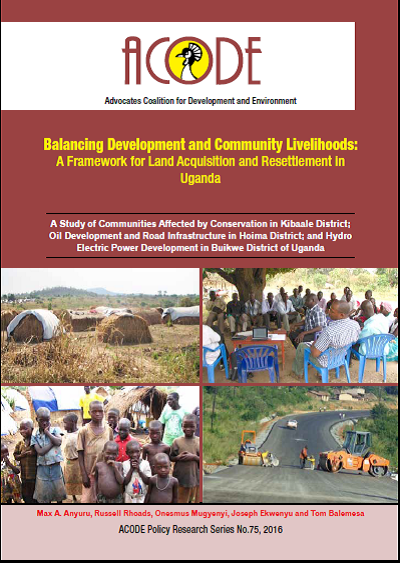Resource information
All rights reserved. No part of this publication may be reproduced, stored in a
retrieval system or transmitted in any form or by any means, electronic, mechanical,
photocopying, recording or otherwise, without prior written permission of the
publisher. ACODE policy work is supported by generous donations and grants
from bilateral donors and charitable foundations. The reproduction or use of this
publication for academic or charitable purposes or for purposes of informing public
policy is excluded from this restriction
Land acquisition for development projects by government, private investors and land speculators is a critical source of tensions and conflicts in many parts of Uganda. Following the discovery of commercially viable oil reserves in 2006, Uganda turned attention to extractives and oil development as a matter of national priority. Evidence of this assertion can be found in the recent 2016-17 national budget allocations, where the portion for oil development is substantial. Development of petroleum and mining sectors requires substantial capital investments, often relying on foreign-based capitalization and multinational firms to construct facilities and operate them. Several foreign companies have drilled exploratory wells in Uganda, in which estimated reserves are at 6.5 billion oil barrels. The government of Uganda has issued production licenses to several foreign oil companies. All these activities have triggered land acquisition by Government for purposes of infrastructure development: - in the form of roads,dams and power grids, refineries and pipelines. Land acquisition is also triggered by private investment and the development of auxiliary services. Secondly, infrastructual developments have a “multiplier effect” since they generate businesses and services, and increase inflationary pressures on services and the land market. As expected, land speculation is also on the rise.


